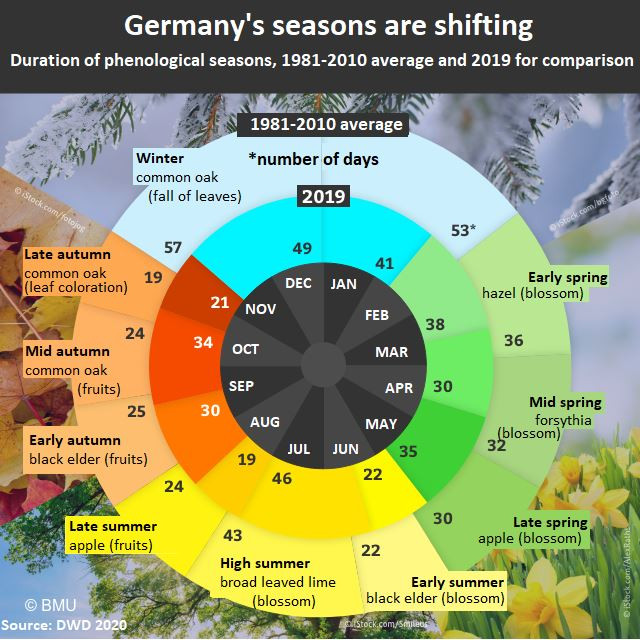Seasons in Germany shifting to shorter winters, earlier summers
Clean Energy Wire
The four seasons in Germany have been shifting over the last decades due to climate change, resulting in shorter winters and earlier summers, phenological data of plant growth analysed by the German Meteorological Service (DWD) has shown. "The 'phenological seasons' in 2019 compared to 1981-2010 averages show a much earlier beginning of the different phases," the DWD said on Twitter, adding that its observations were based on preliminary data. However, meteorologists said the same phenomenon could be observed for longer time spans. A comparison of the phenological seasons between 1961-1990 and 1991-2019 showed results similar to that of the more recent comparison periods, the DWD said. Germany's environment ministry (BMU) said the characteristic vegetation periods "show what climate change means for nature: winter is becoming shorter, spring is coming earlier, seasons are shifting."
Germany has seen weather patterns in recent years that widely deviated from the 1961-1990 international reference period, with 2018 being the warmest and driest year ever in the country and 2019 the third warmest, a development that meteorologists largely attribute to human-made climate change.


